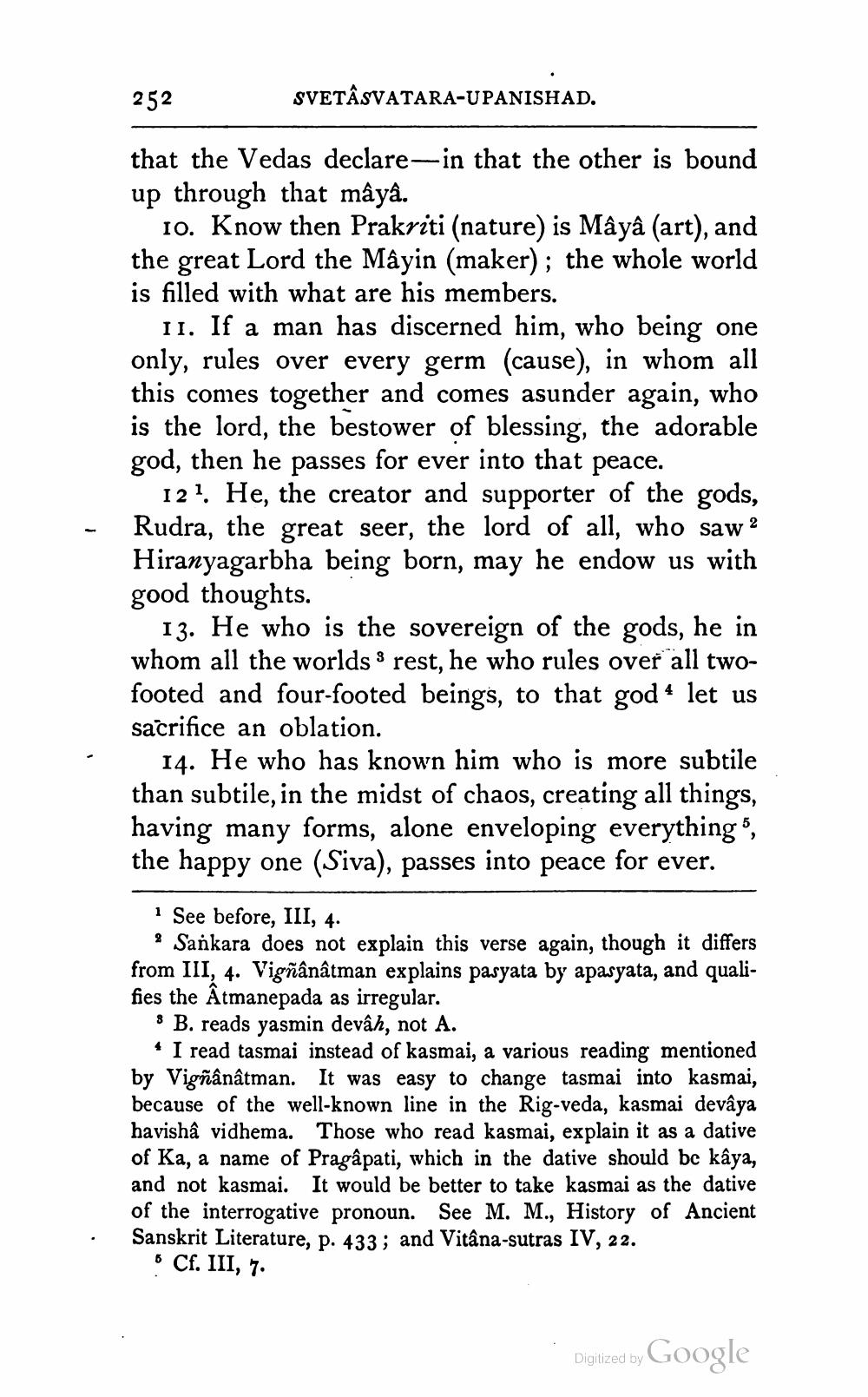________________
252
SVETASVATARA-UPANISHAD.
that the Vedas declare-in that the other is bound up through that mâyâ.
10. Know then Prakriti (nature) is Mâyâ (art), and the great Lord the Mâyin (maker); the whole world is filled with what are his members.
11. If a man has discerned him, who being one only, rules over every germ (cause), in whom all this comes together and comes asunder again, who is the lord, the bestower of blessing, the adorable god, then he passes for ever into that peace.
121. He, the creator and supporter of the gods, Rudra, the great seer, the lord of all, who saw 2 Hiranyagarbha being born, may he endow us with good thoughts.
13. He who is the sovereign of the gods, he in whom all the worlds : rest, he who rules over all twofooted and four-footed beings, to that god 4 let us sacrifice an oblation.
14. He who has known him who is more subtile than subtile, in the midst of chaos, creating all things, having many forms, alone enveloping everything 5, the happy one (Siva), passes into peace for ever.
See before, III, 4.
Sankara does not explain this verse again, though it differs from III, 4. Vigñânâtman explains pasyata by apasyata, and qualifies the Âtmanepada as irregular.
* B. reads yasmin devâh, not A.
* I read tasmai instead of kasmai, a various reading mentioned by Vigñânâtman. It was easy to change tasmai into kasmai, because of the well-known line in the Rig-veda, kasmai devâya havisha vidhema. Those who read kasmai, explain it as a dative of Ka, a name of Pragậpati, which in the dative should be kâya, and not kasmai. It would be better to take kasmai as the dative of the interrogative pronoun. See M. M., History of Ancient Sanskrit Literature, p. 433 ; and Vitâna-sutras IV, 22.
Cf. III, 7.
Digitized by
Digitized by Google




